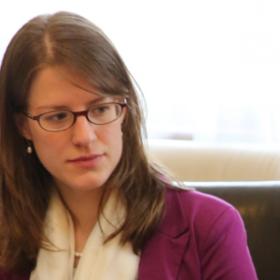
South Korean Foreign Aid: Contributing to International Security
South Korea’s economic rise is an amazing story. From a country devastated by the Korean War with a per capita gross national income (GNI) of $67, the Republic of Korea (ROK) has grown to the world’s 12th largest economy. Over the past 25 years, South Korea has become an important contributor to international development assistance. In 2011, ROK President Lee Myung-bak declared.
… now, the Republic of Korea wants to give back to the international community even more than what it has ever received. The Republic of Korea stands ready to extend a helping hand to those who are in need, providing them with appropriate support and care.
In 1987, South Korea transitioned to a democracy. That same year, after over two decades of solid economic growth, South Korea became a donor of official development assistance (ODA) providing $25 million in foreign aid. Contributions increased steadily, with annual percentage increases that ranged from 30% to 79% for the next 20 years. By 2009, ROK contributions reached $816 million. It is important to note that these ODA numbers don’t include aid to North Korea, which would make these amounts far larger.
In 2010, South Korea joined the prestigious Development Assistance Committee (DAC) of the Organization for Economic Co-operation and Development (OECD). The DAC is a group of 27 OECD member states devoted to promoting economic and social development worldwide. South Korea is the only country to have ever moved from being a recipient of international development assistance to a donor and DAC member. Upon joining the DAC, South Korea vowed to increase its ODA to 0.25% of its GNI by 2015, bringing ROK ODA to approximately $3 billion. By 2012, ODA levels reached $1.551 billion, over half way to the goal.
South Korea’s ODA contributions are noteworthy and continue to grow. Yet, when compared to the other DAC countries, Seoul’s contributions are more modest. Among DAC members, Seoul’s 2012 contribution of $1.551 billion ranked 16th in total contributions, behind Belgium and Spain and ahead of Finland and Austria. Excluding Spain, these countries with similar contribution levels have economies smaller than South Korea. To account for the relative size of donor economies, the OECD also measures contributions as a percentage of GNI. On this list for 2011, South Korea ranks last providing an amount equivalent to 0.12% of its GNI. The top donors of ODA as a percent of GNI are Sweden, Norway, and Luxembourg at 1.02, 1.00, and 0.97% respectively. The ROK pledge to reach 0.25% would move it ahead of the 2012 rates for the United States (0.20) and Japan (0.18) but would continue to be in the bottom third of DAC members.
Despite these rankings, ROK ODA has made significant strides over the past few years, with increases that are far more than most DAC members and done in spite of a difficult economy. In 2012, South Korea had the largest increase in ODA among the DAC at 17%, far ahead of Australia’s 9.2%, the next largest increase. Most DAC members decreased their ODA for 2012. In fact, South Korea’s ODA from 2009 to 2012 increased over 90%; only Australia (97%) had a larger percentage increase during that period. The top two recipients of ROK foreign assistance in 2011 were Vietnam ($143.7 million) and Bangladesh ($80.51 million). Other major beneficiaries of ROK ODA were Cambodia, Sri Lanka, Laos, Jordan, Mongolia, Indonesia, Afghanistan, and the Philippines.
South Korea has also contributed to development assistance through its volunteer program ‘World Friends Korea’ (WFK). Every year, South Korea sends more than 3,000 volunteers abroad to over 100 countries, chiefly in Asia but also in Africa, Latin America, the Middle East, and Eastern Europe. Aligned to support the UN Millennium Development Goals, ROK volunteers provide a broad array of programs that provide assistance in health, education, sustainable rural development, and information technology among others for many of the world’s poorest countries. WFK began in 2009 with the merger of several programs into one combined entity. Only five other countries —Belgium, Germany, Japan, Luxembourg, and the United States— have a similar program.
South Korea’s record of economic development over the past 5 decades has been phenomenal, and Seoul has used some of this wealth to make significant contributions to international development assistance. ROK contributions to foreign aid are impressive and have grown significantly despite the lingering economic slowdown, but there’s more to be done. The ROK government continues to increase its assistance working to reach levels commensurate with its economic and political status. As a rising middle power, South Korea is well positioned to make important contributions to global peace and stability through foreign aid—efforts that are important not only for the world but for South Korea as well.
Originally published by The Strategist.

